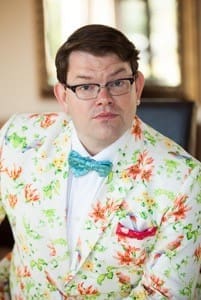What Are You Trying to Prove?
What are you trying to prove? That you are bigger, better, richer, happier, handsomer, more interesting and desirable than anyone else? Compared to whom? And why?
Proving is an interesting concept. Why do we think we have to prove anything? What if you did not have to prove anything to anyone? Wouldn’t that be liberating?
Proving is what we do when we think we are not enough. If you don’t think you are successful enough you will spend your time doing things to prove to others you are successful and then, if they finally notice your success, you will be successful. The catch is, everyone is worried about their own success and doesn’t notice yours, so you will never think you are successful. Isn’t that a bit crazy?
Shakespeare wrote, ‘To thine own self be true’—a father’s brilliant advice to his son in Hamlet. Good advice although not easy to follow if you are trying to prove to others you are bigger, better, richer, happier, etc. What does it mean, ‘to thine own self be true’? To me it means choosing to be and do what resonates with me as true, honorable, respectful, enjoyable and authentically me. It means choosing what makes me happy and when I’m happy I’m always more productive and successful and attractive and fun to be with. What if you chose that—being true to yourself? Try it for a day or a week or a lifetime.
What are you trying to prove? My mother used to say that to me when she thought I was doing something unacceptable or outrageous. When I look back, I was always doing something different than my family members chose and that difference was frowned upon. I also see that for many years I was trying to prove my worth to my family: trying to show that what I chose was as important and meaningful and worthwhile as their choices, and therefore not wrong. When I finally realized that I did not have to prove my worthiness to my family to feel worthy to myself, I felt as though I’d shed a hundred pounds. And, guess what? I’m happier and I enjoy my family more! Are there places in your life where you are still proving yourself worthy to your family?
Are you always trying to prove you’re right? That is a big trap many of us fall into in our relationships, our jobs, our businesses: our lives. What if we did not have to be right? Or wrong? We are taught to always choose to be right. We spend so much time proving ourselves right about everything. How right we are that we can’t do something or be something or change something. How right we are that we can’t afford x or travel to y or learn z. What if, instead, we chose something different?
Something different? What can possibly change a lifetime’s habits? ‘Proving’ is what everyone does—why would I be different? And how?
Here’s what I do: When I realize I’m trying to prove something; I step back and look at why I am trying to prove that. When we try to prove something it’s because we believe the opposite is true. For example, if you are trying to prove you are sexual, underneath it is usually because you have a lot of judgment about sex. If you are trying to prove you are a kind, caring person, underneath you believe you are unkind and selfish. If you are trying to prove you are intelligent it’s because you believe you are not. (We won’t talk about where you picked those beliefs up from, that’s a PhD thesis for someone.)
Take a look at what you are ‘proving’ in your life and turn it around 180 degrees. It might seem crazy or, at the very least, counterintuitive, but celebrate it! Celebrate the thing you are trying to prove isn’t an issue. Celebrate that you have judgements about sex. Celebrate that you are the most unkind, selfish person you know; that you are unintelligent, etc. Just try it out, with champagne, which is my preferred way to celebrate anything. (enjoy another quote from Shakespeare, “daylight and champagne reveal not more”, Malvolio in Twelfth Night)
And then, after you’ve celebrated being unkind and selfish (or whatever your particular belief is), you might find that you start laughing at yourself because you’ve realized you are not always unkind and selfish. Then, the next step is: what if you didn’t have to prove anything? That’s a rather freeing possibility. Almost feels peaceful, right? What a radical concept! Peaceful…
We don’t have to spend all our time judging ourselves. We can just ‘be’ with what we see are our limitations, be in allowance of them and be grateful for them. Another radical concept—gratitude.
Peaceful and grateful. Would you be willing to try that for a few days and see if that is more pleasant and, ultimately, more productive than proving?
So, my step by step process is to 1) catch myself trying to prove something, 2) face it, 3) turn it 180 degrees, 4) celebrate it (which might include some laughing at how silly the belief is, 5) be grateful for it and in allowance of it, 6) choose something different.
We send you off to make some new choices with Shakespeare (and Polonius’) recipe for success, “To thine own self be true, and it must follow, as the night the day, thou canst not then be false to any [one].


Christopher Hughes is a communications mentor, arts and antiques curator. He has an undergraduate degree in Opera and Song from the University of Western Ontario and a master’s degree in Integrated Marketing and Communications from QUT. Chris spent time in the world of professional opera and later used his voice in various industries, from singing telegrams to voiceovers for videos, cartoons and elevators. He is currently the Managing Director and curator at the Antique Guild in Brisbane and Vice President of Australian Antique an Art Dealers Association. Chris facilitates classes for Right Voice for You and The Elegance of Living; both special programs by Access Consciousness. Learn more here. He desires is to help people to “live beautifully” and encourages everyone to always take the best things off the shelf and use them, including the best parts of themselves. Follow his work here.





